OPENING LECTURE
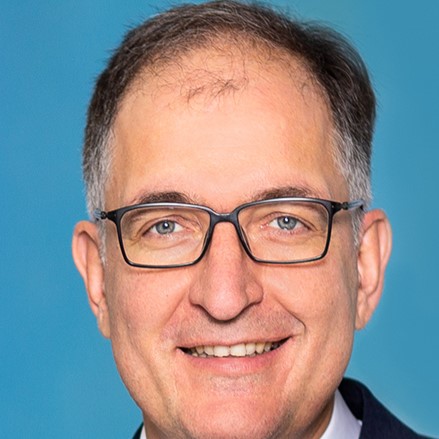
Prof. Peter H. Seeberger
Max Planck Institute of Colloids and Interfaces, Germany
Peter H. Seeberger studied chemistry in Erlangen (Germany) and completed a PhD in biochemistry in Boulder (USA). After a postdoctoral fellowship at the Sloan-Kettering Cancer Center Research in New York he advanced to tenured Firmenich Associate Professor of Chemistry at MIT. After six years as Professor at the Swiss Federal Institute of Technology (ETH) Zurich he assumed positions as Director at the Max-Planck Institute for Colloids and Interfaces in Potsdam and Professor at the Free University of Berlin in 2009. ##MORE## In addition, he serves as honorary Professor at the University of Potsdam. From 2003-2014 he was Affiliate Professor at the Sanford-Burnham Institute for Medical Research (La Jolla, USA). Since 2021, he is a Vice President of the German Research Foundation (DFG) the main funding body in Germany. Since 2023, Seeberger is the Founding Director of the “Center for the Transformation of Chemistry” that received €1.25 billion funding. He is a member of the governing body of the Max-Planck Society (“Senate”) and the Veterinary University (TiHo) Hannover (“Stiftungsrat”). Professor Seeberger’s research on the chemistry and biology of carbohydrates, carbohydrate vaccine development and continuous flow synthesis of drug substances spans a broad range of topics from engineering to immunology and has been documented in over 660 peer-reviewed journal articles, four books, more than 60 patents, over 200 published abstracts and more than 950 invited lectures. He is one of the editors of the standard textbook “Essentials of Glycobiology”. His work was recognized with more than 40 international awards from the US (e.g. Arthur C. Cope Young Scholar Award, Horace B. Isbell Award, Claude S. Hudson Award from the American Chemical Society), Germany (e.g. Körber Prize for European Sciences, Wissenschaftspreis des Stifterverbandes, Emil Fischer Medal), Holland (Havinga Medal), Israel (Honorary Lifetime Member Israel Chemical Society), Japan (Yoshimasa Hirata Gold Medal), Switzerland (“The 100 Most Important Swiss”), the Philippines (“Gusi Peace Prize”), the Czech Republic (Dr. h.c. Univ. Chem. Tech. Prague) and international organizations (Whistler Award 2012, Int. Carboh. Soc.). In 2013 he was elected to the Berlin-Brandenburg (Prussian) Academy of Sciences.Peter H. Seeberger greatly supports the idea of open access publishing as the Editor-in-Chief of the Beilstein Journal of Organic Chemistry and serves on the editorial advisory boards of many other journals.Through his work in the area of neglected diseases, Peter Seeberger has become involved in philanthropic causes. He is a co-founder of the Tesfa-Ilg “Hope for Africa” Foundation that aims at improving health care in Ethiopia that recently helped to build a bed-net factory and established an IT training center.The research in the Seeberger laboratory has given rise to nine successful companies in the USA, Switzerland, Denmark and Germany.
PLENARY SPEAKERS
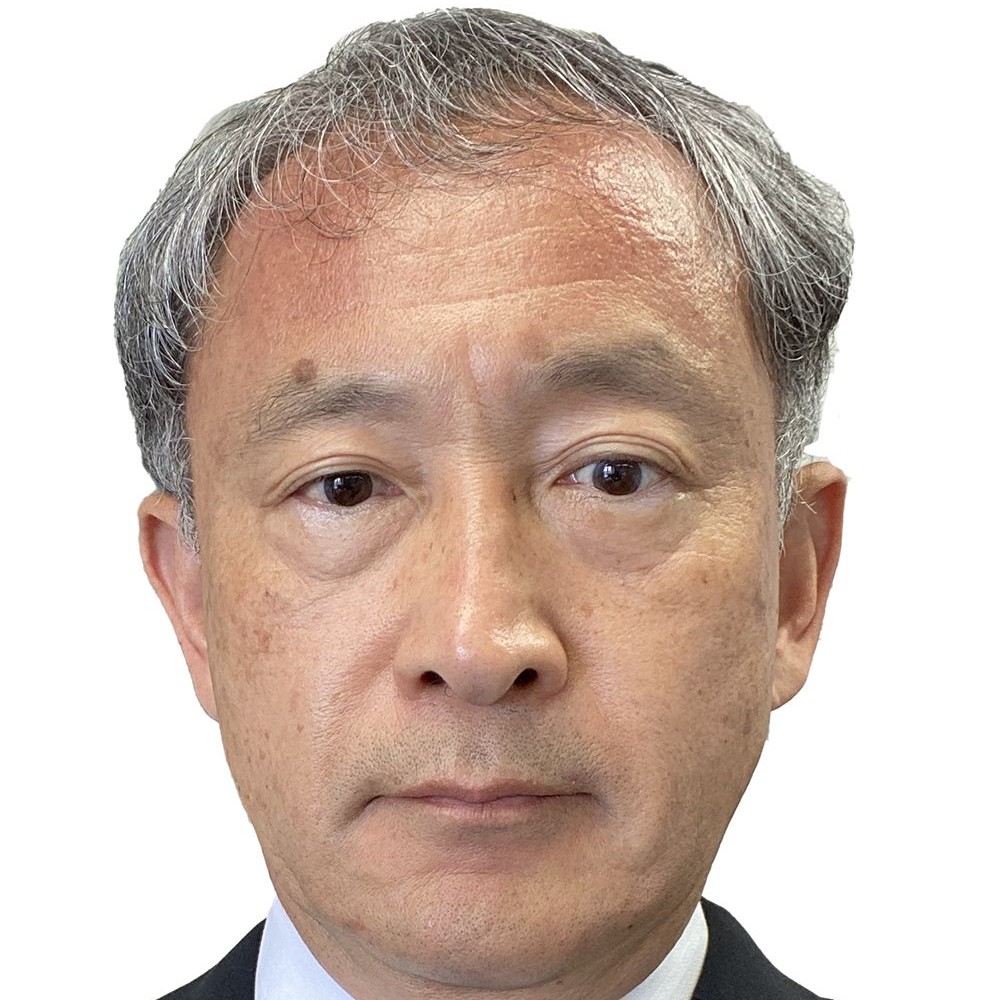
Prof. Ikuro Abe
The University of Tokyo, Japan
Ikuro Abe is Professor of Natural Products Chemistry at Graduate School of Pharmaceutical Sciences, The University of Tokyo (since 2009). He received his B.S. (1984) and Ph.D. (1989) from The University of Tokyo. After two years postdoctoral research with Professor Guy Ourisson at the CNRS Institut de Chimie des Substances Naturelles, and mostly with Professor Michel Rohmer at the Ecole Nationale Supérieure de Chimie de Mulhouse in France (1989-1991), he moved to the USA to work with Professor Glenn D. Prestwich at the State University of New York at Stony Brook (1991-1996) and then at the University of Utah (1996-1998). ##MORE## His research interests mostly focus on exploring and engineering the natural products biosynthesis. He has authored 300+ publications including Nature, Nat Catal, Nat Chem Biol, Nat Commun, JACS, ACIE, and PNAS. He received the Pharmaceutical Society of Japan Award in 2019, and Prizes for Science and Technology by the Minister of Education, Culture, Sports, Science and Technology, Japan. He is a former President of The Japanese Society of Pharmacognosy.
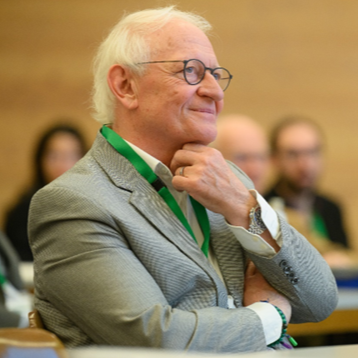
Prof. Günther K. Bonn
University of Innsbruck, Austria
Professor Günther K. Bonn is the founder, CEO and Scientific Director of the ADSI - Austrian Drug Screening Institute GmbH, Austria, a company of the University of Innsbruck, which bridges the gap between basic research and industry. He is also Chair of the Foundation Board of Trustees of the Michael A. Popp Nature Science Foundation and initiator and founder of the Phytovalley-Tirol initiative. ##MORE## Professor Bonn is co-author of over 400 scientific publications, 29 patents and two books. Professor Bonn has been awarded many prestigious awards, including Halasz´ Award (2003), Honorary Ring of the Austrian Academy of Sciences, Vienna (2009), EUSSS Nernst-Tswett Award (2010), Csaba Horváth Memorial Award (2011), UPV – Wissenschaftspreis, University of Innsbruck (2012) and A.J.P. Martin – Medal (2013). In 2014 he received the Honorary Doctorate Degree from the Medical University Lublin and the “Austrian Cross of Honour for Science and Art, 1st Class” in 2022. He is also Editorial Board member of several journals, e.g. Journal of Chromatographic Science, LC-GC Europe, Current Medicinal Chemistry, Current Analytical Chemistry, Bioanalytical Reviews, International Journal of Analytical Chromatography, Clinical Phytoscience and Biomedical Chromatography (Editor for Europe). Professor Bonn’s research interests include analytical chemistry, synthesis of new materials for enrichment and separation technologies, e.g. chromatography, electrophoresis, mass spectrometry and bioanalysis (genomics, proteomics, metabolomics, phytomics), especially in phytopharmacy, phytocosmetics, nutrition and food-supplements.
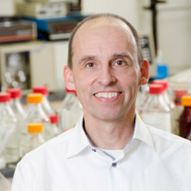
Prof. Guido F. Pauli
University of Illinois at Chicago, UIC College of Pharmacy, United States
Trained as a pharmacistwith specialization in pharmaceutical analysis, his doctoral degree is in pharmaceutical biology/pharmacognosy. Heseeks to enhance our understanding of complex NPs as health products and sources of new drugs. His basic andtranslational research on bioactive natural products involves diverse materials from plants, actinomycetes, and dietarysupplements. He develops analytical and NP technologies such as quantitative NMR spectroscopy and countercurrentseparation, applied to clinical interventions, anti-TB antibiotics, dental materials, and innovation of NP drug discoveryworkflows. ##MORE## He dedicates his expertise and leads efforts for the advancement of pharmacopoeial methodsat the United States Pharmacopoeia (USP), information systems on alternative and complementary therapies at NCINIH, as well as UIC’s WHO Centre for Traditional Medicine and NIH-funded NP training program. His academic trackrecord includes worldwide collaborations, mentorship of 22 Ph.D. students, 28 postdocs, and 19 visiting scientists260+ publications and Scopus/Google h-indices of 60/72.
KEYNOTE SPEAKERS
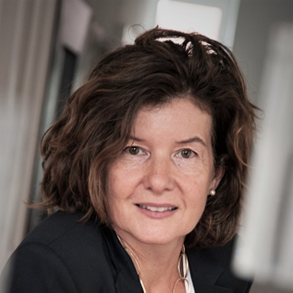
Univ.-Prof. Dr. Judith M. Rollinger
University of Vienna, Austria
After her PhD in Pharmacognosy (University of Innsbruck/Austria), Judith Rollinger extended her studies to the fields of phytochemistry, ethnopharmacology, and molecular modelling, and implemented computational approaches in natural product science (habilitation in 2007). She was appointed full Professor at her present institution in 2014 leading the ‘Phytochemistry and Biodiscovery’ group. Prof. Rollinger is senator of the University of Vienna and project leader in various national and international projects. ##MORE## She served as president (2020 - 2023) of the largest European learned society, focusing on research on natural products, nature-based drug discovery, medicinal plant research and quality control of herbal medicines – the “Society for Medicinal Plant and Natural Product Research” (Home - Society for Medicinal Plant and Natural Product Research (GA) (ga-online.org)). Her research focuses on the interdisciplinary field of integrating big data analytics (chemoinformatics, chemometry) in pharmacognostic research as strategy for the discovery of natural lead structures for treating viral infections, metabolic syndrome, and inflammation. Publications resulting from her research have appeared in highly ranked international journals (~140), as book contributions, and patents.
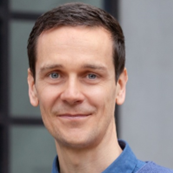
Prof. Dr. Robin Teufel
University of Basel, Switzerland
Robin Teufel studied Biology at the University of Freiburg (Germany) with a focus onMicrobiology and obtained his Diploma in 2008 in the group ofProf. Georg Fuchs. During his succeeding PhD studies in thesame place, he investigated the enzymology of bacterialaromatic catabolism until 2011. He then conductedpostdoctoral research at the University of California San Diego(USA) in the group of Prof. Bradley Moore until December2014, where he explored the biosynthesis of bacterialmeroterpenoid and polyketide natural products. He thenreturned to the University of Freiburg in 2015 as independentDFG-funded Emmy Noether (and later Heisenberg) researchgroup leader working on the biosynthesis and enzymology ofvarious bacterial aromatic natural products. ##MORE## He completed his habilitation in Microbiology inFreiburg in 2020, before taking on his current position as head of the division“Pharmaceutical Biology” at the Department of Pharmaceutical Sciences, University of Basel(Switzerland) in 2022.His current work centers on the identification of natural products from plants andmicroorganisms as possible drug candidates. In addition, biosynthetic pathways and involvedenzymes are being investigated and engineered to generate novel bioactive natural productderivatives, e.g. with antibiotic or anticancer activity.
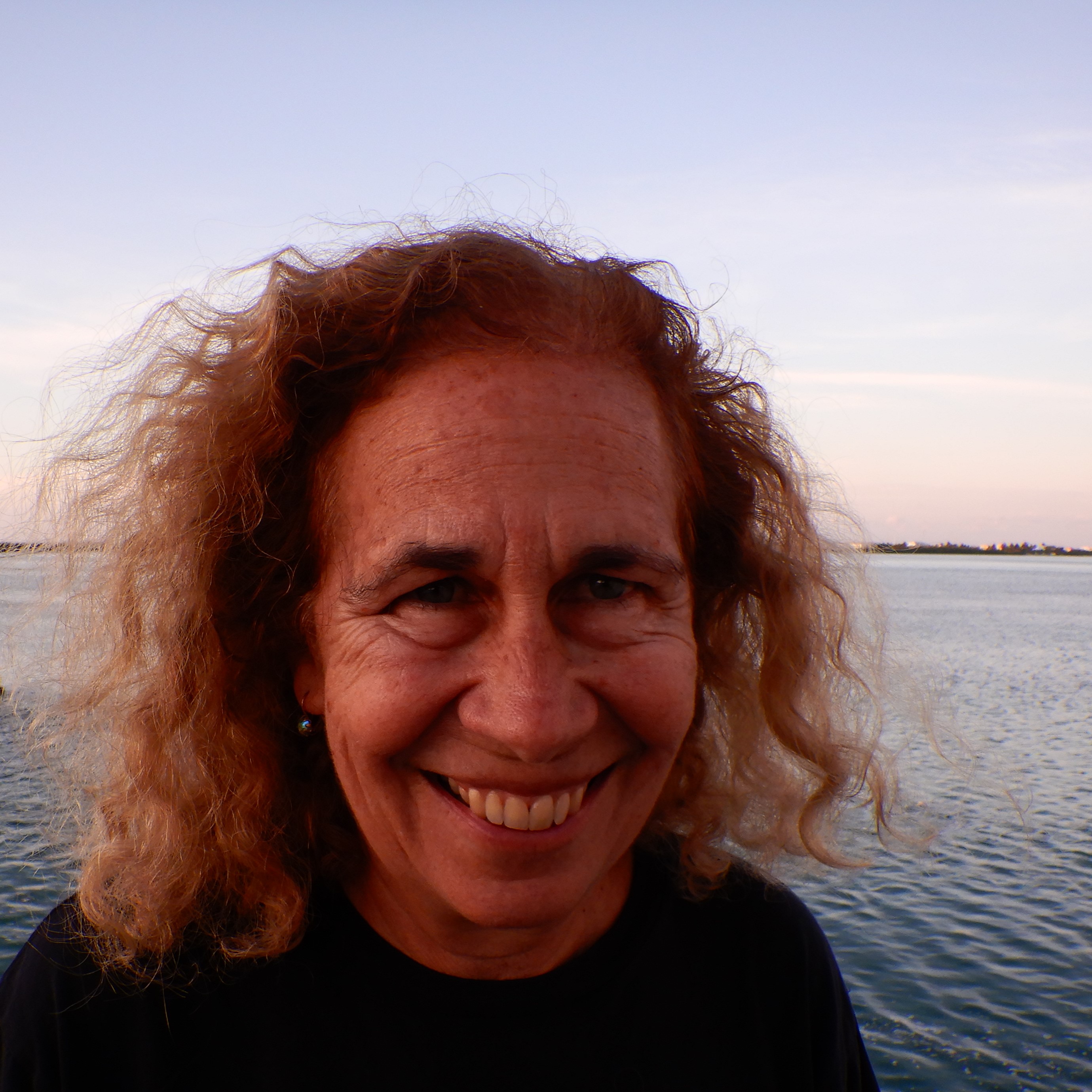
Dr Valerie Paul
Head Scientist, Smithsonian Marine Station at Fort Pierce, United States
Dr Valerie Paul has been the Director and Head Scientist of the Smithsonian Marine Station at Fort Pierce, Florida since 2002. She received her Ph.D. in Marine Biology in 1985 from the University of California San Diego, Scripps Institution of Oceanography, and then served on the faculty of the University of Guam Marine Laboratory from 1985-2002. In Guam, Valerie built a research program focused on marine chemical ecology and coral reef studies. Her ongoing research interests include marine cyanobacteria and algal blooms, coral reef ecology, marine chemical ecology and natural products. ##MORE## She is the author or co-author of over 310 scientific research papers and review articles. Valerie was elected a Fellow of the American Association for the Advancement of Science in 1996. In 2019, she was selected as the Silver Medal Award recipient recognizing career achievement by the International Society of Chemical Ecology. In 2020, she received the Paul J. Scheuer Award in Marine Natural Products. Her work on coral reefs has been recognized with the Eminence in Research Award from the International Coral Reef Society in 2020.
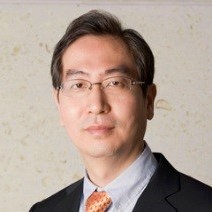
Prof. Dong-Chan Oh
Seoul National University, South Korea
Prof. Dong-Chan Oh studied oceanography and chemistry at Seoul National University in the Republic of Korea. In 2006, he received his Ph.D. in marine natural product chemistry from Scripps Institution of Oceanography under the supervision of Prof. William Fenical. After graduating, he served as a postdoctoral research fellow at Harvard Medical School before becoming an instructor under Prof. Jon Clardy. He began his independent academic career at the Natural Products Research Institute, College of Pharmacy, Seoul National University in 2009. ##MORE## From 2012 through 2017, he worked as a Howard Hughes Medical Institute International Early Career Scientist. Dong-Chan Oh is a full professor in the College of Pharmacy at Seoul National University and the director of the Natural Products Research Institute. He is a member of the Natural Product Reports editorial board and the Journal of Natural Products editorial advisory board. His study focuses on the discovery, structure elucidation, and stereochemical determination of new bioactive natural compounds derived from microorganisms.
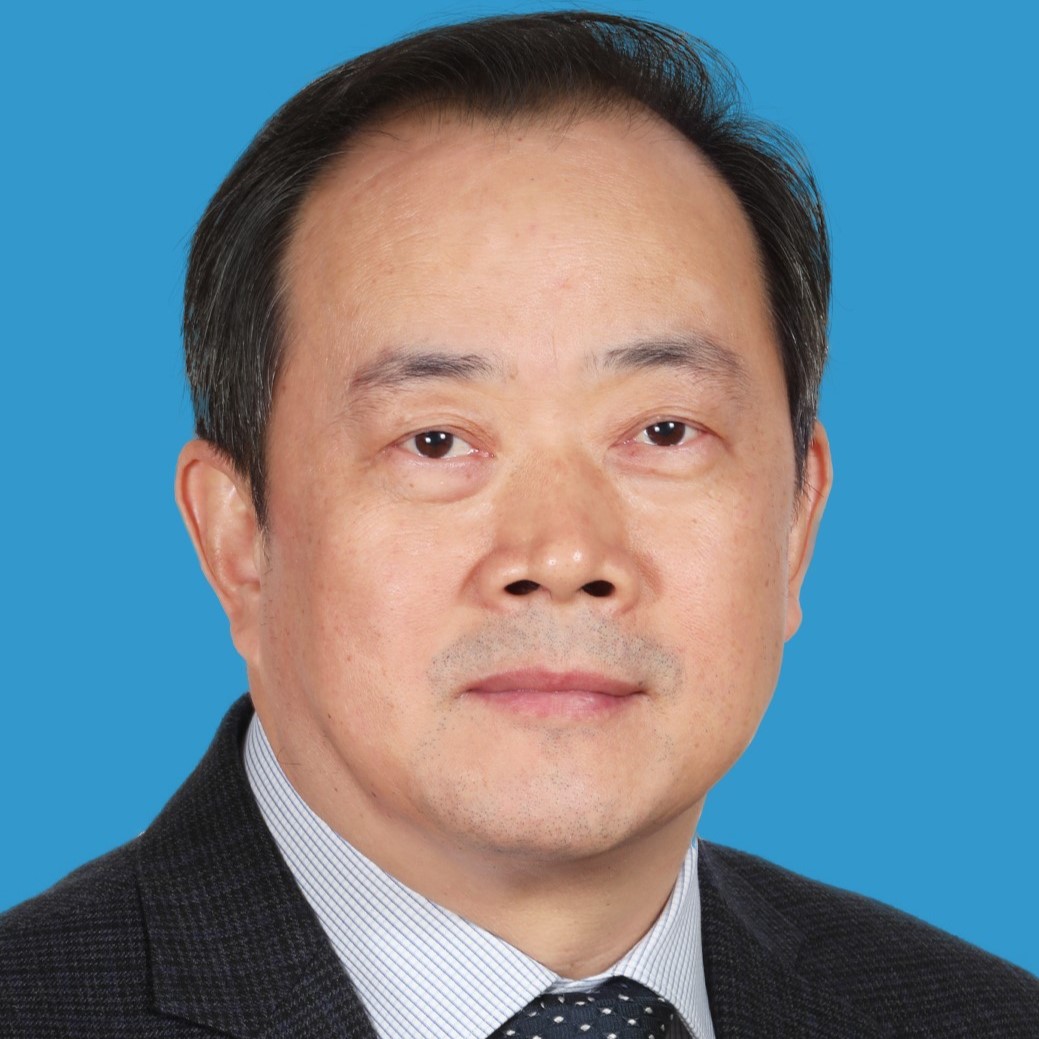
Prof. De-an Guo
Shanghai Institute of Materia Medica, Chinese Academy of Sciences, China
Prof. De-an Guo serves as director of the Shanghai TCM Research Center and National Engineering Research Center of TCM Standardization Technology at Shanghai Institute of Materia Medica, Chinese Academy of Sciences. He received his Ph.D. Degree of Pharmacognosy at Beijing Medical University in 1990 and proceeded postdoctoral research at Texas Tech University (1993.6-1996.10). His main research focused on the TCM comprehensive analysis and quality standard development for the main-stream pharmacopoeias. ##MORE## He developed a series of strategies and analytical methods including the “Chemical-Metabolic-Biological analysis” approach named “Trinity Analysis” for the holistic quality standard elaboration, based on which the quality monographs for TCM pharmacopoeial standards were established including Chinese Pharmacopoeia, United States Pharmacopoeia, and European Pharmacopoeia, etc. To date, he has published over 580 SCI papers with 17,000 plus SCI citations. Dr. Guo received a number of renowned national and international awards including National Natural Science Award and National Science and Technology Progress Award, American Society of Pharmacognosy Varo Tyler Prize, among others.
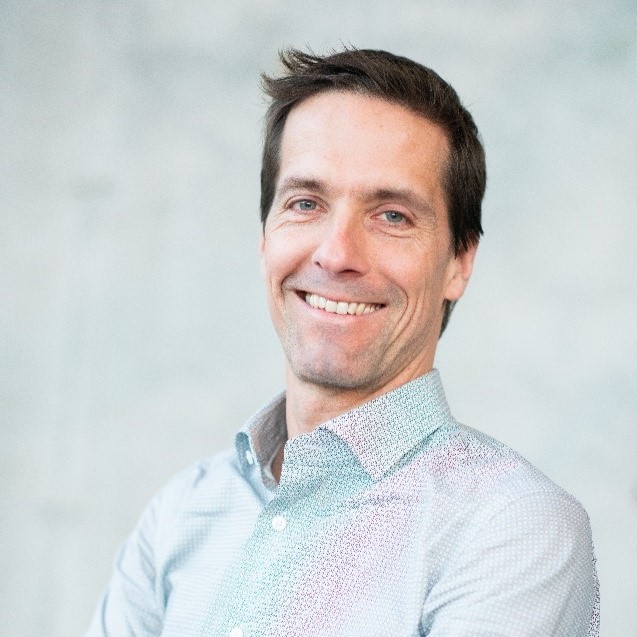
Prof. Dr Alain Goossens
Ghent University, Belgium
Prof. Alain Goossens obtained his Master in Biology-Plant Biotechnology at Ghent University (1992) and his PhD in Marc Van Montagu’s and Geert Angenon’s lab at the Laboratory of Genetics, Ghent University (1998), studying plant seed storage protein synthesis. During his PhD, he has also been a visiting researcher at CIAT in Cali (Colombia) in the group of César Cardona. After obtaining his PhD degree, he performed postdoctoral studies for 2 years at the IBMCP-UPV in Valencia (Spain) in the lab of Ramón Serrano, supported by a TMR-Marie Curie EU postdoctoral fellowship, and working on yeast salt tolerance. ##MORE## He returned to VIB-Ghent University and started his own research group within the VIB-UGent Center for Plant Systems Biology at Ghent University in 2003, focusing on jasmonate signaling, gene discovery in plant specialized metabolism and metabolic engineering. He is experienced in yeast and plant functional genomics, molecular biology and applied biotechnology. His current research aspires to understand jasmonate signaling in model, crop and medicinal plants and unravel the mechanisms that steer plant metabolism in fitness programs to find novel tools for plant metabolic engineering and synthetic biology. He has been appointed as a Full Professor at Ghent University in 2015 and senior Full Professor in 2022. He has been mentoring over 45 master students, 35 PhD students and 25 postdoctoral researchers. Five of his alumni have acquired leading academic positions as professors and two more as managers of core facilities at universities in Belgium and abroad. He has authored over 150 peer reviewed publications, including in Nature, Science, Nature Communications, PNAS, etc.., which have been cited over 12,000 times. In 2020 he was elected as an EMBO fellow and since 2015 he has been continuously included in the Clarivate list of Highly Cited Researchers.
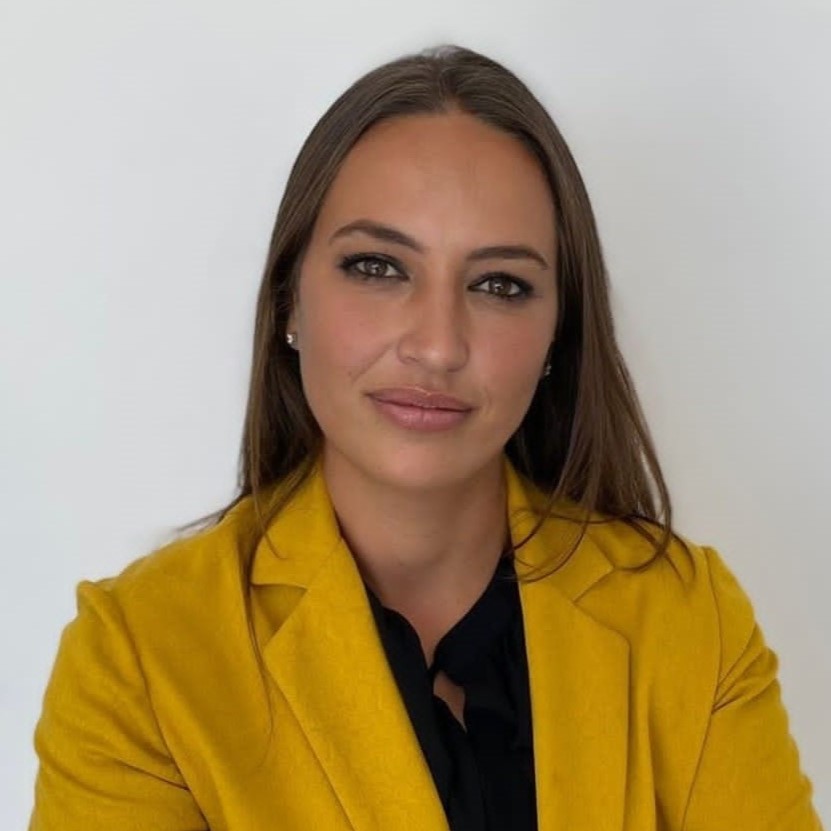
Prof. Maria Giovanna Chini
University of Molise, Italy
Prof. Maria Giovanna Chini obtained her master’s degree in Chemistry and Pharmaceutical Technology in 2005 at the University of Naples Federico II and completed her PhD in Pharmaceutical Sciences at the University of Salerno in 2012. During this period, she was a Visiting Ph.D. Student at the School of Chemistry at the University of Bristol under the supervision of Dr. Craig Butts. She is now Associate Professor in Organic Chemistry at the Department of Biosciences and Territory (DiBT), University of Molise. In 2023, she was an invited Professor for Teaching activity at the Department of Natural Sciences and Medicine of Ilia State University (Georgia) within the ERASMUS+ INTERNATIONAL CREDIT MOBILITY framework. ##MORE## In 2016, she was awarded the Giacomo Ciamician medal by the Organic Chemistry Division of the Italian Chemical Society. Her scientific fields of interest are a) extraction, isolation, and structural characterization of bioactive metabolites obtained from natural sources; b) analysis of ligand/target interaction by NMR techniques coupled with computational methods; c) advanced NMR techniques and ab initio calculations for the stereostructure determination of natural molecules; d) design and synthesis of new bioactive molecular platforms. From November 2022 until May 2025, she was appointed as Delegate of the Rector to the Library of the University of Molise. Since March 2023 she is the PI of an annual project Start-UP-2022 and since July 2023 she is Responsible for the Local Research Unit of a two-year PRIN project.
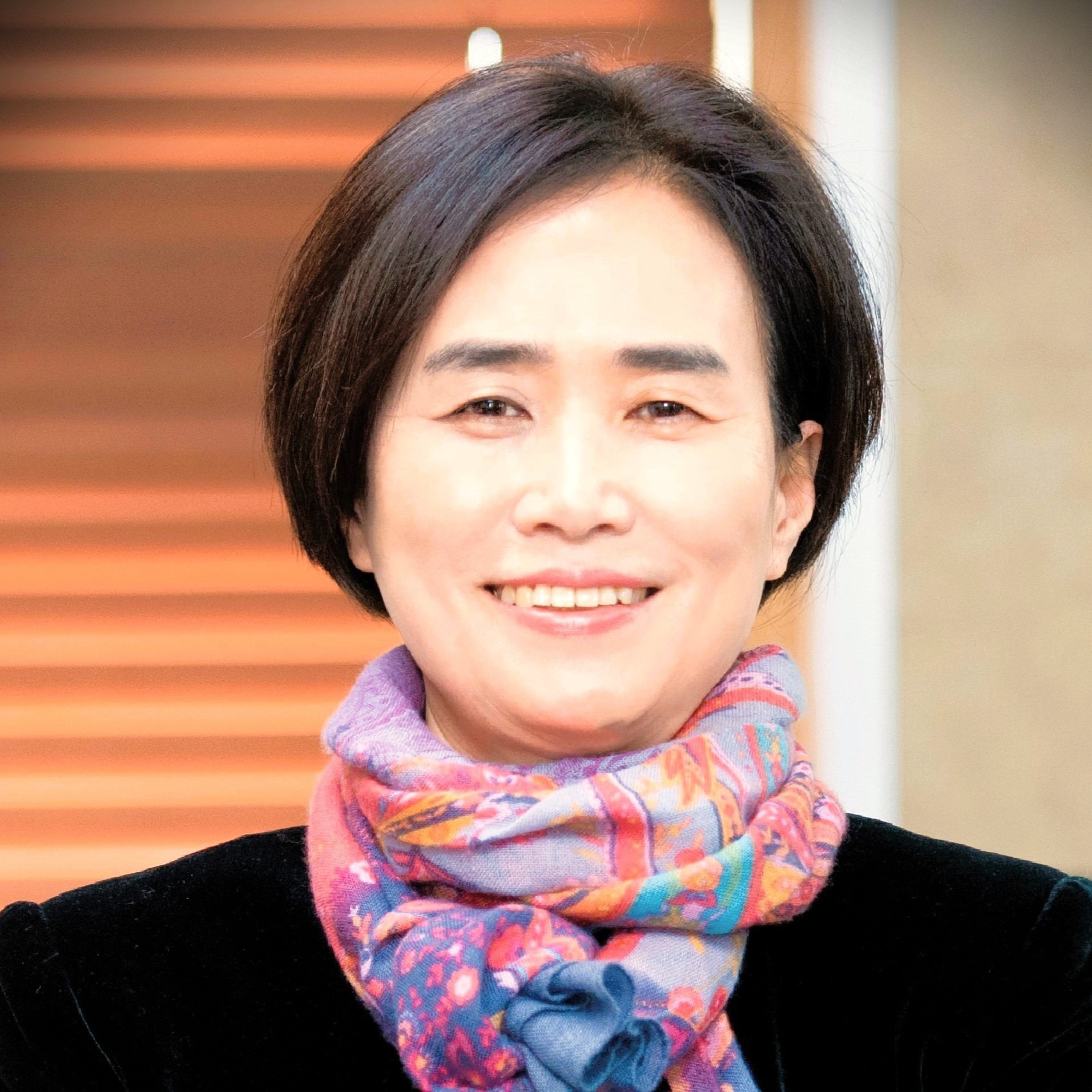
Prof. Yun-Sil Lee
Ewha Womans University, South Korea
Prof. Yun-Sil Lee is a full professor at the Graduate School of Pharmaceutical Sciences at EwhaWomans University. She earned her B.S., M.S., and Ph.D. degrees in the College of Pharmacy atEwha Womans University. Following her academic journey, she pursued postdoctoral researchat the National Cancer Institute (NCI) in the USA. For nearly two decades, she worked as aPrincipal Scientist at the Korea Institute of Radiological and Medical Sciences, where shecontributed significantly to research on radiation damage modulators. ##MORE## Her research primarilyrevolves around the development of radiation protectors or sensitizers that target heat shockprotein 27 (HSP27) using small molecules, with a specific emphasis on natural products. Morerecently, her research interests have shifted towards the development of inhibitors for pulmonaryfibrosis. Currently, there are only two clinical treatments available for pulmonary fibrosis,underscoring the pressing need for additional treatment options. Consequently, she is activelyengaged in research to identify new therapeutic targets and to develop inhibitors based on thesediscoveries. Dr. Lee's extensive research contributions are reflected in her publication record,with over 200 SCI(E) papers. Her expertise has also earned her invitations to internationalsymposia as an invited speaker.
.png)
Prof. Séverine Derbré
University of Angers, France
Séverine Derbré is a scientist in the field of natural products (NPs) and a trained pharmacist. Aftergraduating from the Faculty of Pharmacy in Angers (France) in 2002, she obtained her PhD in thechemistry of NPs under the supervision of Pr. E. Poupon at the University of Paris 11 in 2006. Shethen worked as a post-doctoral fellow at the French Atomic and Alternative Energy Commission (CEASaclay, France) with Y. Ambroise in the laboratory of C. Mioskowski and B. Rousseau.In 2007, she was recruited by the University of Angers, Faculty of Pharmacy, as Assistant Professor of Pharmacognosy and joined the SONAS laboratory headed by Pr. P. Richomme. ##MORE## Her fields of interestare the chemistry of NPs and their biological activities, with special focus on methodological aspectsfor the discovery of bioactive NPs, especially from tropical endemic Clusiaceous and Calophyllaceousspecies (chemometrics, molecular networking).Recently, she has been involved in the development of new methods for the rapid identification ofactive NPs in complex matrices based on mass spectrometry (LDI-HRMS; UPLC-HRMS) and 13 CNMR. In the field, she and her team have recently developed a freely available software, namelyMixONat (https://sourceforge.net/projects/mixonat/), to decipher complex mixtures based on 13 C-NMRspectra (Most Innovative Paper Award, Planta Medica, 2021 | Habilitation in 2020).She has also developed an automated anti-AGE screening assay that allows rapid evaluation of NPsand extracts for potential cosmetic and therapeutic applications (anti-inflammatory andimmunomodulatory).
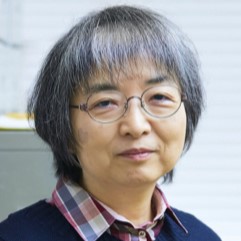
Prof. Sachiko Tsukamoto
Kumamoto University, Japan
Prof Sachiko Tsukamoto since 2009 is Professor Kumamoto University, Graduate School of Pharmaceutical Science. Previously she was affiliated: 2008 Chiba University, Professor, Graduate School of Science 2000 Kanazawa University, Associate Professor, Faculty of Pharmaceutical Sciences. Her research interests focuse on Marine Biomedical Research and searching for drug leads/chemical probes from natural resources including microorganisms, marine organisms, and plants.
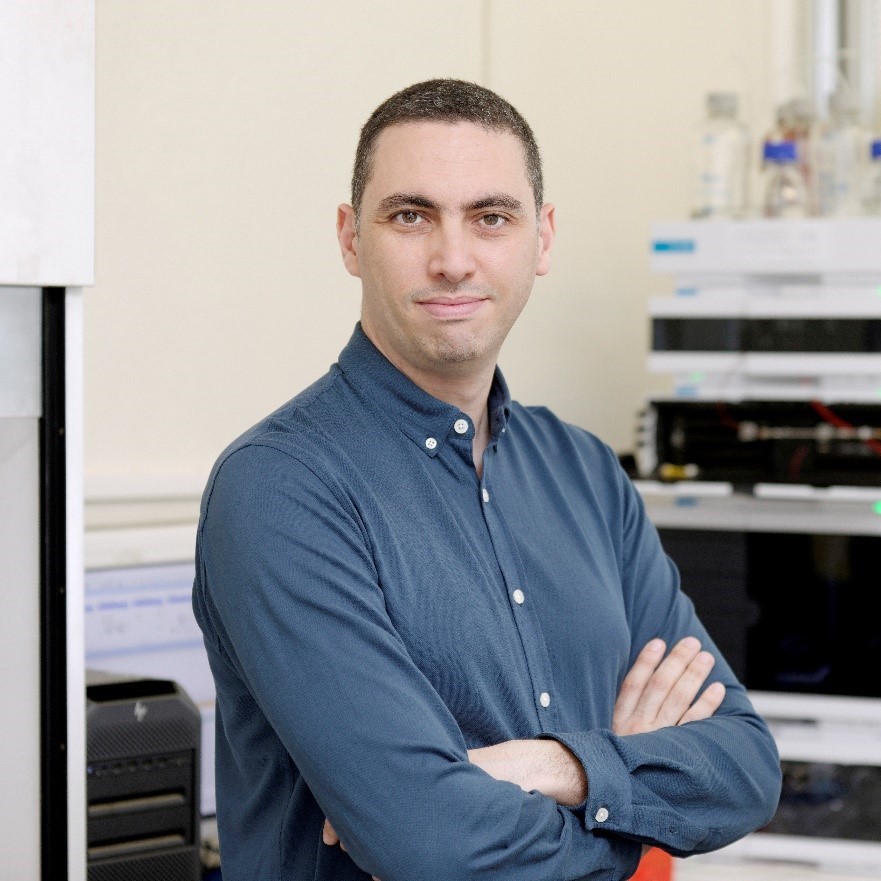
Prof. Mehdi Beniddir
Université Paris-Saclay, France
Mehdi Beniddir is a Professor of Natural Product Chemistry at the Faculty of Pharmacy of Paris-Saclay University. His research interests include the streamlined discovery and structure elucidation of intricate natural substances from plants, marine invertebrates and micro-organisms using MS-based dereplication approaches.
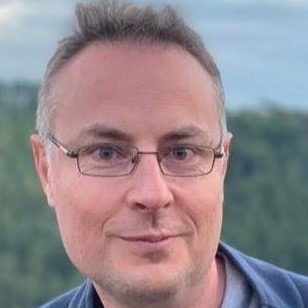
Prof. Michel Frédérich
University of Liège, Belgium
Michel Frédérich was born in Verviers (Belgium) in 1973. He was graduated Pharmacist in1996 at the University of Liège (Belgium) where he obtained his PhD in PharmaceuticalSciences in 2000, and the Agrégation de l’Enseignement Supérieur degree in 2007. Herealized during the year 2003 a postdoctoral stay in the laboratory of Pharmacognosy ofProfessor Verpoorte at the University of Leiden (Netherlands). Laureate of three awards, hewas Senior Researcher at the F.N.R.S. (Fond National de la Recherche Scientifique) from2004 to 2010. In 2010 he became lecturer at the University of Liège and he is currently fullProfessor in Pharmacognosy. ##MORE## Author of more than 120 international publications, his fields ofresearch are Natural substances with antiplasmodial, antitumoral and anti-inflammatoryproperties, plant metabolomics and herbal medicines quality control.
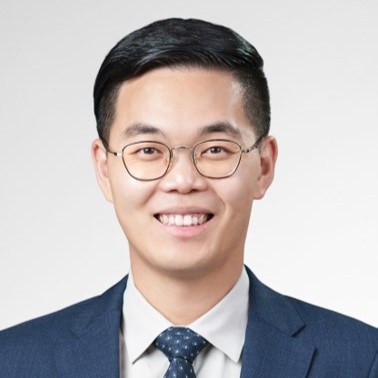
Prof. Chung Sub Kim
Sungkyunkwan University, South Korea
Prof. Chung Sub Kim is an Assistant Professor of School of Pharmacy at SungkyunkwanUniversity, South Korea. He graduated from Sungkyunkwan University with a B.S. andPh.D. in Pharmacy in 2010 and 2015, respectively, under the guidance of Prof. Kang Ro Leefocused on the plant natural product chemistry. After a four-year postdoctoral research withProf. Jason Crawford in Yale University, he started his independent career at SungkyunkwanUniversity in 2020. ##MORE## He received Young Pharmacognosy Researcher Award from the Korean Society ofPharmacognosy in 2022 and Next Generation Pharmacy Researcher Award from thePharmaceutical Society of Korea in 2022. His research interests mainly focus on 1) isolationand elucidation of structure and biosynthetic pathway of small molecules from humanmicrobiome, 2) discovery of lead compounds for new drugs from natural sources, and 3)stereochemical assignment/revision of organic molecules by computational chemistry.
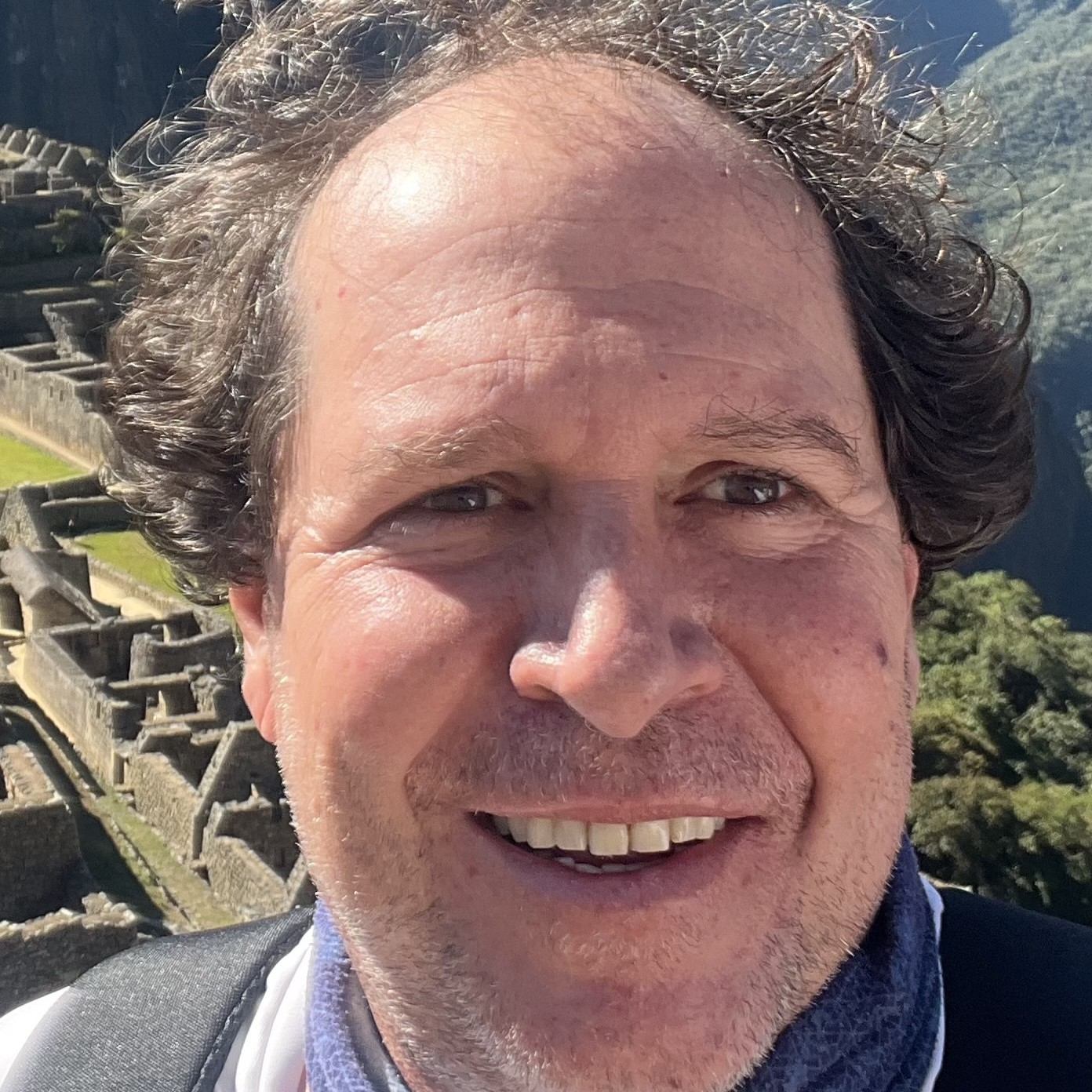
Prof. Norberto Peporine Lopes
Universidade de São Paulo, Brasil
Prof. Norberto Peporine Lopes is currently Professor of Organic Chemistry at Physic and Chemistry Department of School of Pharmaceutical Sciences of Ribeirão Preto from University of São Paulo since 1998. He is Temporary Visiting Professor at Food Chemistry Department of Munster University (German) since 2009. Prof. Lopes has extensive experience in the natural products chemistry and analytical chemistry focus on mass spectrometry. ##MORE## The goal of his research is to investigate the interaction between different organisms in natural (Plant, microorganisms, marine and terrestrial animals) applying metabolomic strategies. Lopes leads one FAPESP thematic project, he is founder of the Mass Spectrometry Facility CEMMO and also initiated the of NAP-USP research nucleus in natural and synthetic products. He is Member of the Brazilian Academy of Science, Fellow of the Royal Society of Chemistry and President of the Brazilian Chemical Society. Advisory Boarder member of the Planta Medica, Rapid Communications in Mass Spetrometry, Scientific Reports and ACS-OMEGA. Received in his career eight prizes with highlight to the honorary medal of the Brazilian Society of Mass Spectrometry and the Prize of Innovation Fernando Galembeck of the Brazilian Society of Chemistry. He is the author of five books, 15 books chapters and over 490 refereed scientific publications and is currently rated with a WoS h-index of 48.
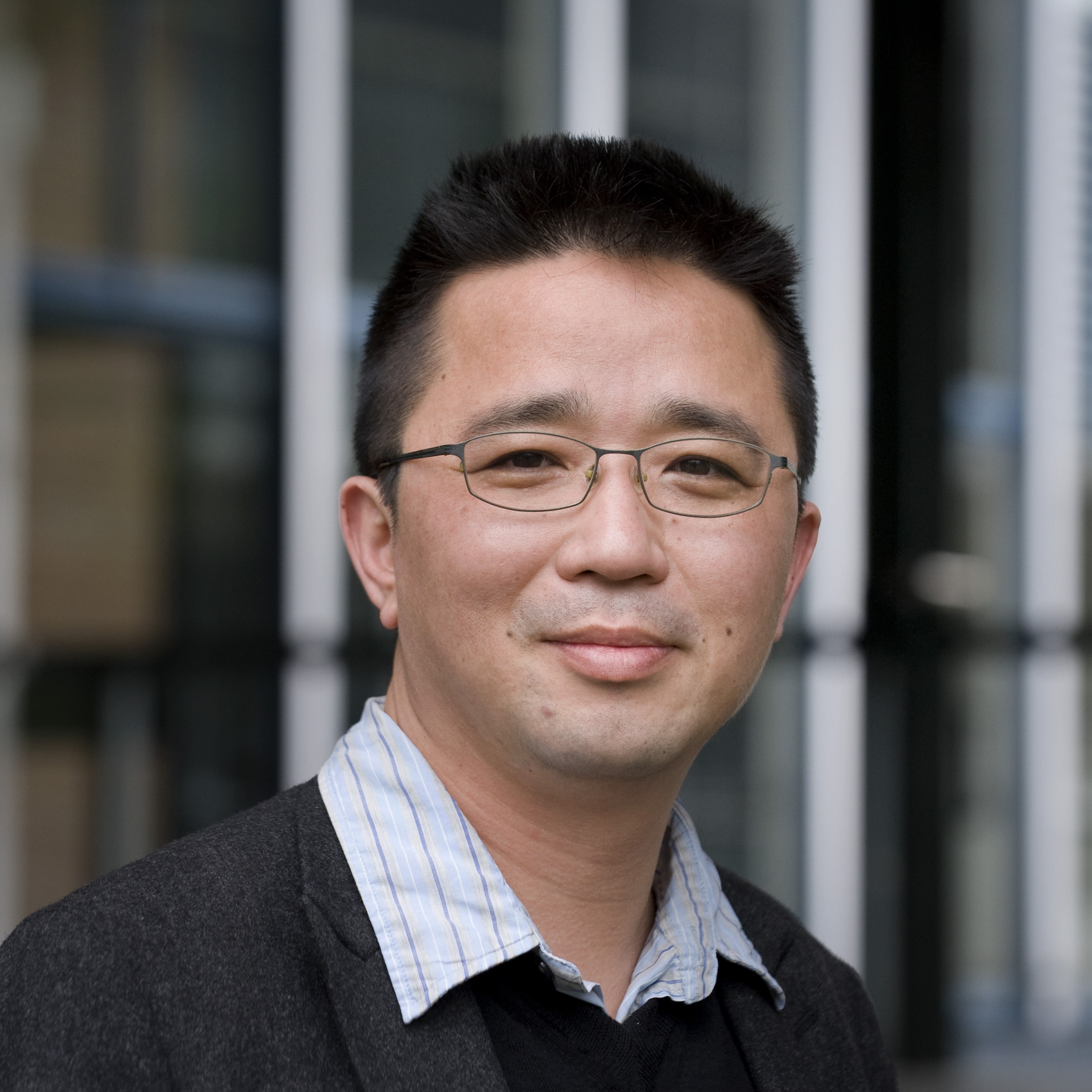
Prof. Young Hae Choi
Leiden University, The Netherlands
Young graduated on College of Pharmacy, Seoul National University in1992. In 2000, he received PhD diploma from the same university. The title of his PhD thesisis ‘Supercritical Fluid Extraction of Nitrogen-Containing Natural Products’. After two yearsof post-doc experience working at the application of mass spectrometry to the identificationof natural products, he moved to Leiden University, the Netherlands (the present position). Inthe last 20 years, he developed diverse metabolomics methods of plant and microorganisms. Using the developed methods, a wide range of biological model systems were investigatedfor the research questions related to biology, physiology, and ecology. ##MORE## Some of hisrepresentative metabolomics research can be exemplified with tobacco–TMV (tobaccomosaic virus), Brassica–herbivores, Senecio– thrips, Brassica and Arabidopsis treaded withsignal molecules (salicylic acid, jasmonate, and benzothiadiazole),Catharanthus–phytoplasma and some chemo-taxonomical applications for Ilex andCannabis. And many traditional medicines were used for metabolomics. On top of theresearch field of metabolomics he has also focused on green technology using natural deepeutectic solvents and supercritical fluids. Based on the research career, so far, he haspublished more than 290 peer-reviewed scientific papers that has been cited over 13,000
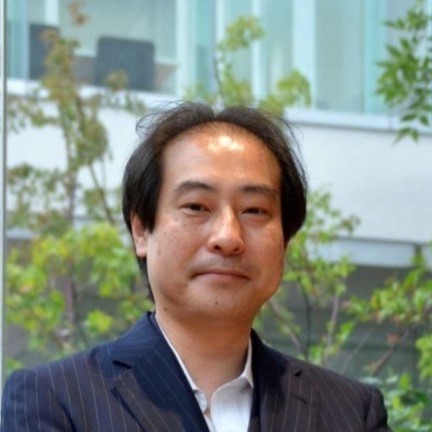
Prof. Toshio Morikawa
Kindai University, Japan
Prof. Toshio Morikawa was born in Kyoto, Japan, in 1972. He received a B.Sc. fromKyoto Pharmaceutical University (KPU) in 1995 and an M.Sc. from the GraduateSchool of Pharmaceutical Sciences, KPU, in 1997. He started his academic career underProf. Dr. Masayuki Yoshikawa at KPU in 2001 and received a Ph.D. in 2002. In 2005,he moved to Pharmaceutical Research and Technology Institute, Kindai University(formerly known as Kinki University), as a Lecturer (Prof. Dr. Osamu Muraoka) andwas promoted to Associate Professor (P.I.) in 2010 and then to a Professor in 2015. ##MORE## Hewas awarded The Japan Society of Pharmacognosy (JSP) Award for Young Scientists(2005), The Pharmaceutical Society of Japan (PSJ) Kinki Branch Award for YoungScientists (2008), The JSP Award for Scientific Contributions (2018), and The PSJAward for Divisional Scientific Promotion (2022). His current research focuses on thesearch for bio-functional molecules obtained from natural resources to prevent andameliorate lifestyle diseases. He has published over 250 papers in peer reviewedjournals and is currently serving on the editorial board members of Journal of NaturalMedicines (JONM, Associate Editor), Traditional & Kampo Medicine (TKM, Editor-in-Chief, Basic Research), and Japanese Journal of Food Chemistry and Safety.
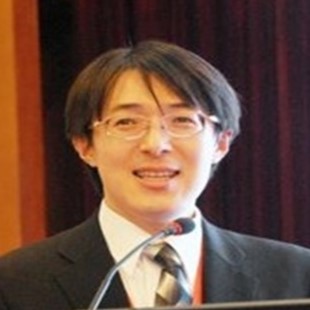
Prof. Toshiaki Makino
Nagoya City University, Japan
Prof. Toshiaki Makino is a pharmacist and pharmacognosist. Hegraduated from Graduate School of Pharmaceutical Sciences, KyotoUniversity, Japan, to awarded Ph.D in 2000. Then, he started his career asan assistant professor at the Department of Kampo Medicinal Sciences,Hokkaido College of Pharmacy, Japan where he learned the theory oftraditional Japanese Kampo medicine and its research methodology. ##MORE## Then,he moved his research career in Graduate School of PharmaceuticalSciences, Nagoya City University in 2005, and he became full professor ofthe Department of Phamacognosy in 2014. He published 254 researchpapers in academic journals, including 158 papers included in SCI. Hisresearch interest is not only classical pharmacognosy treating qualitycontrol and the isolation of active chemicals from traditional medicines butalso clinical pharmacognosy using pharmacology and pharmacokinetics oftraditional medicines to provide drug information for pharmacists andphysicians. Furthermore, he also studies medicinal history. He is thedirector of Japanese Society of Pharmacognosy, Japanese Society ofOriental Medicine, and International Society of Oriental Medicine. He isthe representative of Japan Liaison of Oriental Medicine to manage Japanteam in ISO/TC249 traditional Chinese medicine.
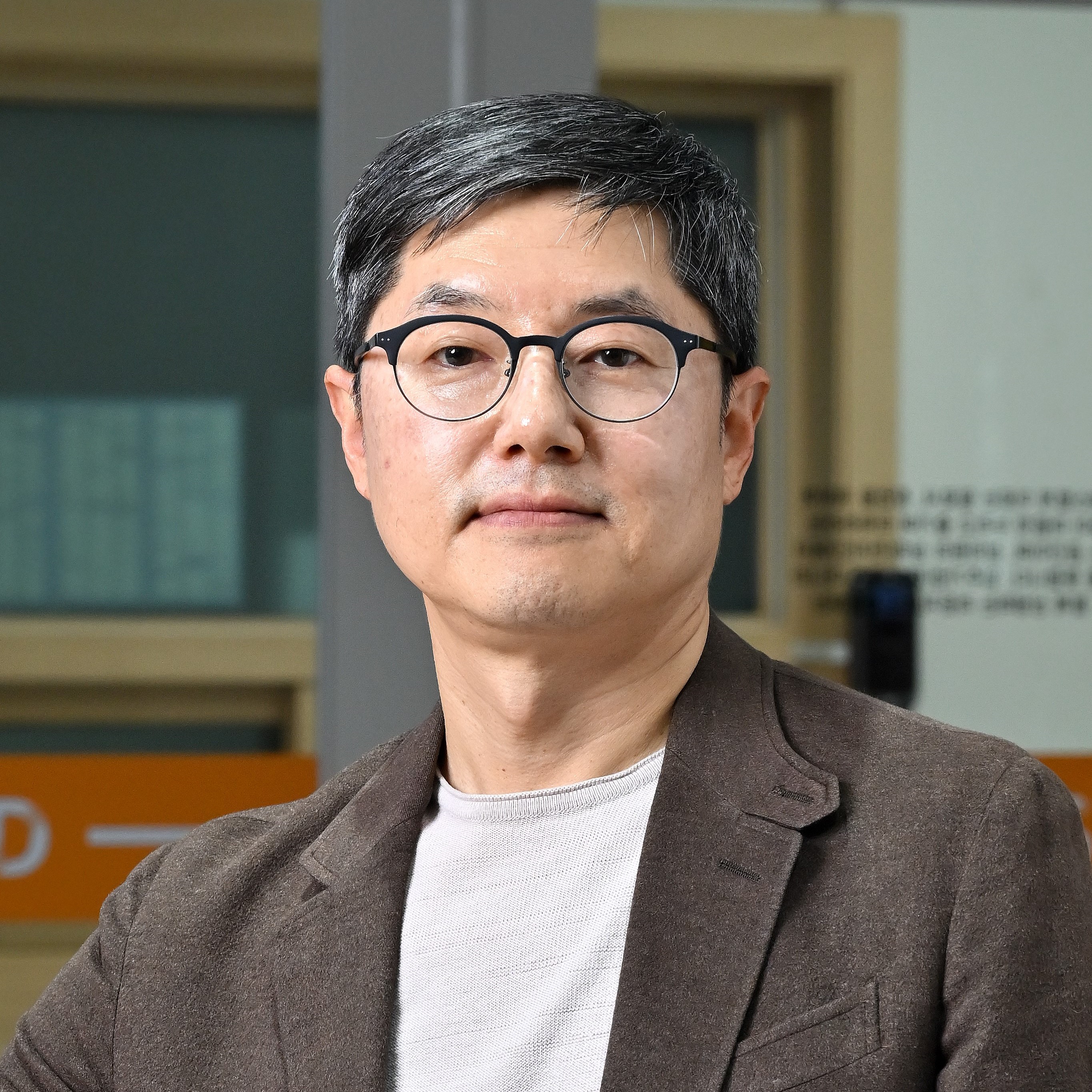
Prof. Young Pyo Jang
Kyung Hee University, South Korea
Prof. Young Pyo Jang is a professor of Pharmacognosy lab at College of Pharmacy of Kyung HeeUniversity, Seoul, South Korea. He received a bachelors degree from Seoul National University School of Pharmacy in 1992 and a doctorate from the same university in 2001. ##MORE## In 2002, he moved toKoji Nakanishi laboratory at Columbia University, NY, NY and conducted research on anthocyaninand aging fragments as a postdoctoral researcher, and in 2005 he moved to Janet Sparro slaboratory at the same University. Since becoming a professor at Kyung Hee University College ofPharmacy in 2007, he has been conducting various studies on the standardization of herbalmedicines and raw materials using DART-MS, HPTLC, etc.
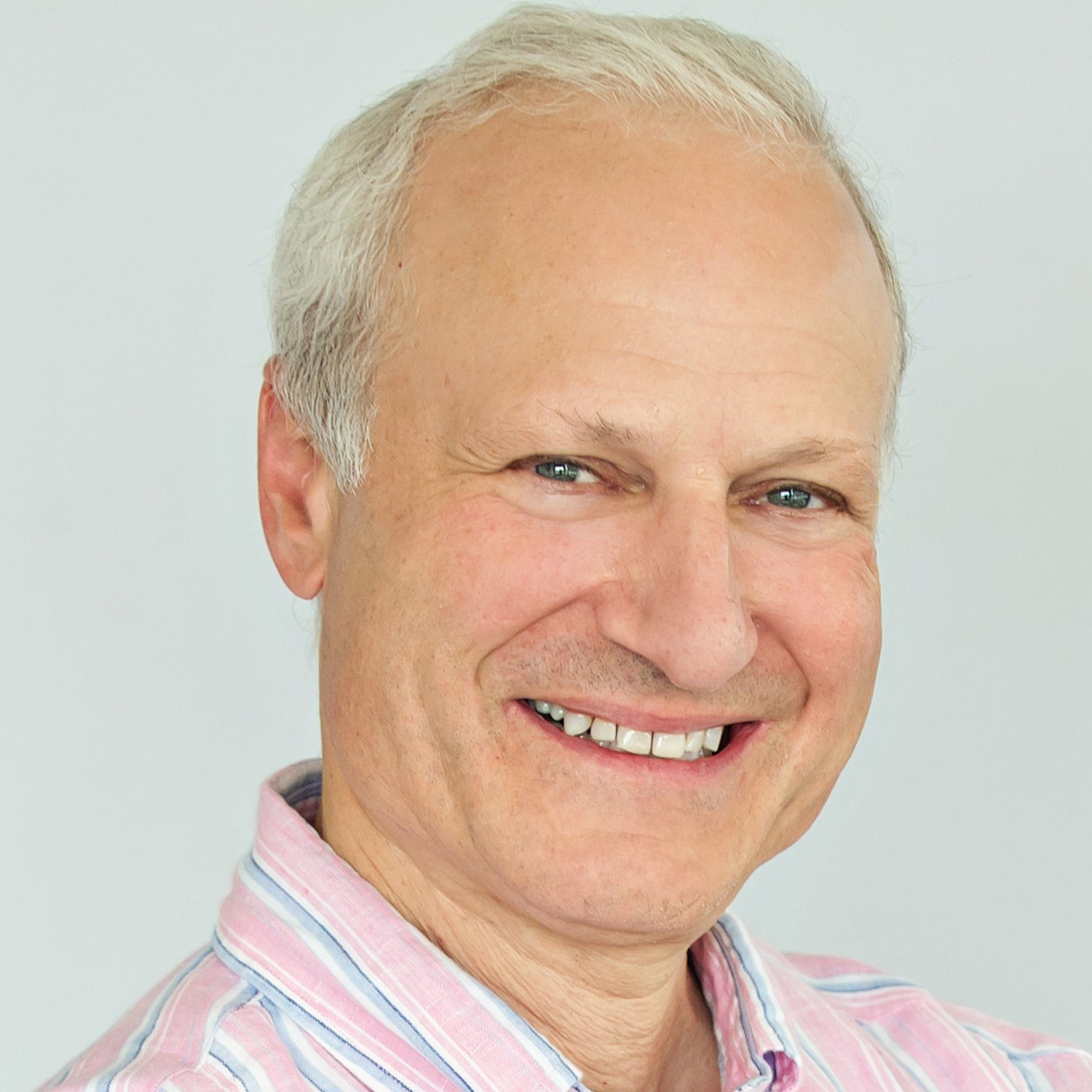
Prof. David Sherman
University of Michigan, United States
Professor Sherman received his undergraduate degree in chemistry at UC Santa Cruz(Phil Crews, research advisor) and Ph.D. in synthetic organic chemistry at ColumbiaUniversity with Gilbert Stork. After four years at Biogen, he moved to the John InnesInstitute as a research scientist with Sir Prof. David A. Hopwood. Following 13 years atthe University of Minnesota, Prof. Sherman moved to the University of Michigan and isnow the Hans W. Vahlteich Professor of Medicinal Chemistry, Professor of Chemistry,and Professor of Microbiology & Immunology. ##MORE## Sherman’s laboratory is in the U-M LifeSciences Institute where his research focuses on the discovery and analysis of bioactivenatural products, their metabolic pathways, and diverse biosynthetic enzymes. Thefunctional, structural, and computational analysis of new biocatalysts for late-stage C-Hfunctionalization, polyketide assembly, and pericyclic reactions is a particular focus ofthe group. Prof. Sherman is faculty lead for the U-M Natural Products BiosciencesInitiative and co-founder of the Natural Products Discovery Core.Dr. Sherman was founding Director of the Center for Chemical Genomics at theUniversity of Michigan Life Science Institute (2004 – 2013). LSI maintains core facilitiescovering the areas of high throughput screening and drug discovery, structural biologyand protein production with resources to support cross-disciplinary science includinggenetics; genomics and proteomics; molecular and cellular biology; and structural,chemical and computational biology. Sherman now serves on the advisory board forMichigan Drug Discovery.

Prof. Rolf Müller
Helmholtz Institute for Pharmaceutical Research Saarland (HIPS), Germany
Professor Rolf Müller is Managing Director of the Helmholtz Institute for Pharmaceutical Research Saarland(HIPS) since 2009, and heads the Department of “Microbial Natural Products” (MINS). Since October2003, he has held a chair as professor of Pharmaceutical Biotechnology at Saarland University. Rolf is involved in several national and international research networks and collaborations with theaim to identify novel bioactive natural products, to analyze their biosynthesis and structures and todevelop their biological and chemical properties towards novel (pre)clinical candidates. ##MORE## He is electedmember of both acatech and Leopoldina as well as honorary professor of the Shandong Universityjoint Helmholtz Institute of Biotechnology, which has recently been recognized as HelmholtzInternational Laboratory for Antiinfectives. In 2021, he was awarded the Gottfried Wilhelm Leibniz-Prize of the German Research Foundation (DFG) and in August 2023, the Charles Thom Award ofthe Society for Industrial Microbiology and Biotechnology (SIMB).Rolf studied pharmacy in Bonn, where he also obtained his PhD in 1994. After a two-year researchscholarship at the University of Washington in Seattle, he became junior group leader at theGesellschaft für Biotechnologische Forschung in Braunschweig. In 2000, he completed his habilitationthesis at the Technische Universität Braunschweig on the biosynthesis of antibiotics in actinomycetesand myxobacteria.
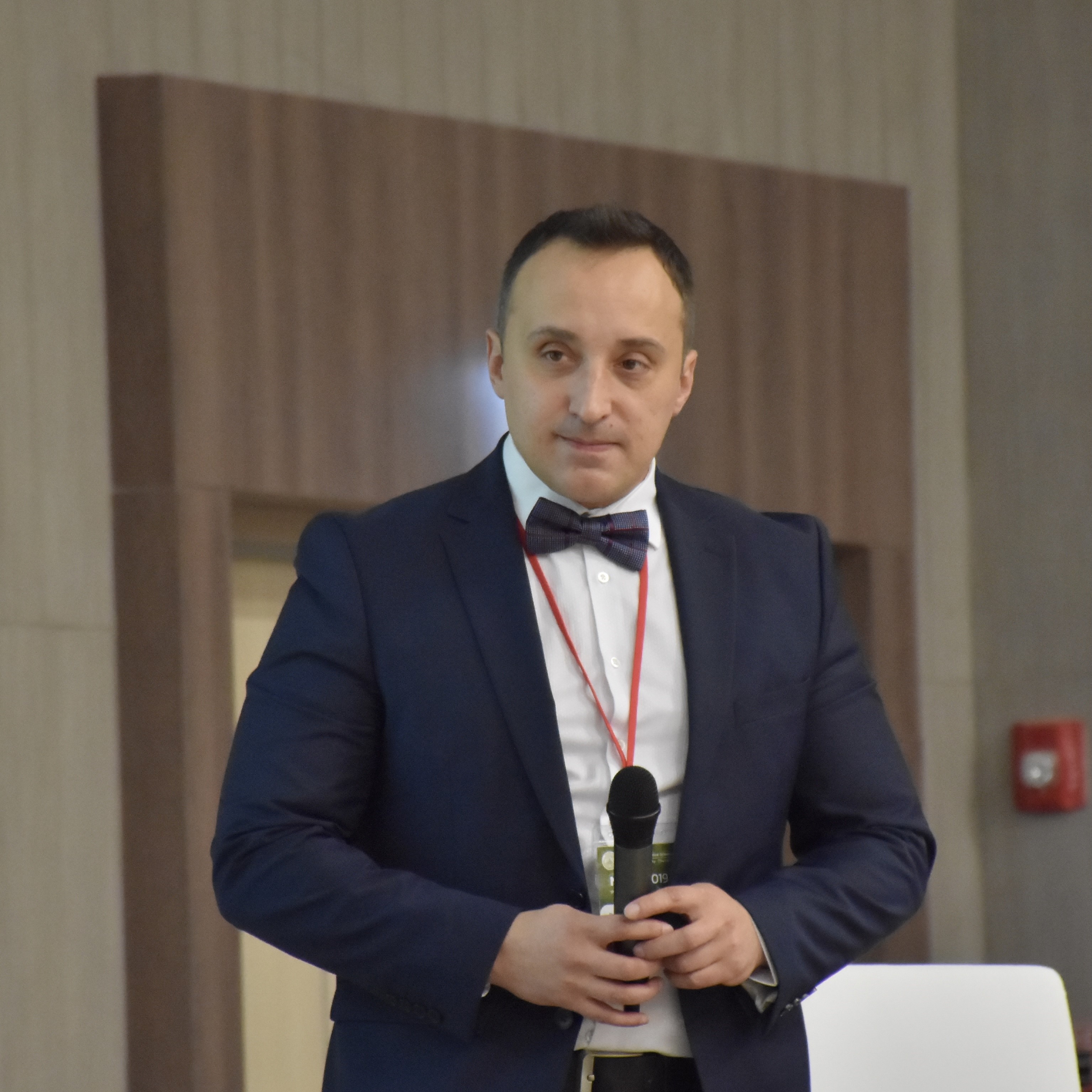
Prof. Milen Georgiev
Bulgarian Academy of Sciences, Bulgaria
Prof. Milen Georgiev is heading a Lab of Metabolomics @ Institute ofMicrobiology, Bulgarian Academy of Sciences. He has 20 years of experience innatural products field and has published in excess of 200 papers (i.a., NatureReviews Drug Discovery, Molecular Plant, Genome Biology, Biomedicine &Pharmacotherapy, and Plant Biotechnology Journal, among others). He hasdelivered 60+ invited lectures in 25 different countries. ##MORE## His current research focuses on 1) biosynthesis of fine molecules and developmentof biotech tools for their sustainable mass production, 2) metabolomics andcomprehensive metabolite profiling and 3) molecular pharmacology with particularfocus on obesity and longevity.Since 2020 he is listed among top 2% in worldwide citation ranking of all scientistsand scientific disciplines for four consecutive years. Milen is a recipient ofPythagoras award for outstanding scientist by the Bulgarian Ministry of Educationand Science (2011, 2015 and 2020), being the first scientist in Bulgaria to have wonthree times. Milen serves as an Editor, Associate Editor and Editorial Board member of dozenjournals in biotechnology and natural products fields, incl. Phytomedicine,Phytochemistry, Biotechnology Letters, Chinese Medicine, Food Frontiers, Frontiersin Pharmacology, among others. Serving as a chairman he has established theInternational Conference on Natural Products Utilization: from Plants to PharmacyShelf (ICNPU), which had five issues so far.
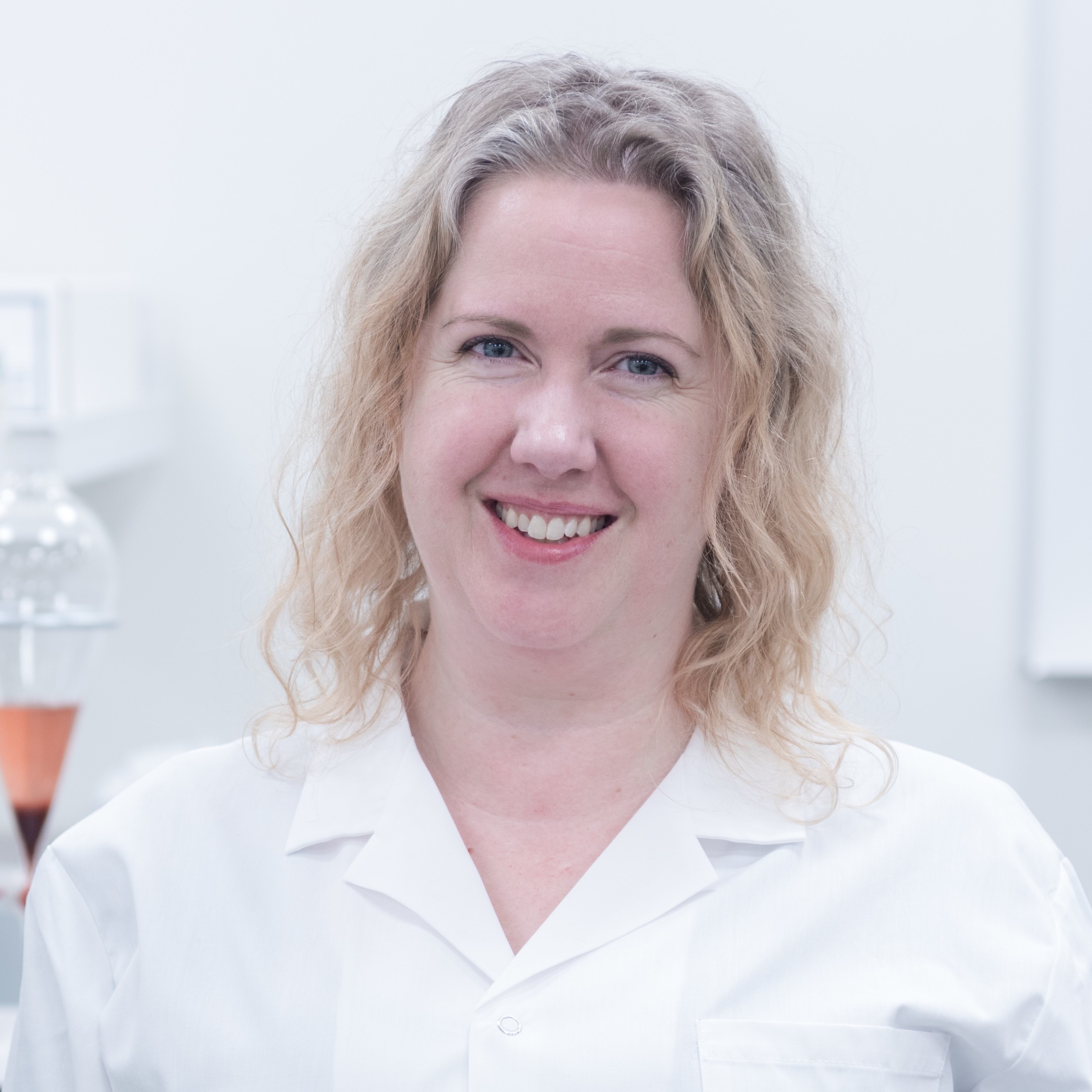
Dr. Paula N. Brown
British Columbia Institute of Technology, Canada
Director of Applied Research for Natural Health & Food Products at the BC Institute of Technology and holds a Tier 2 Canada Research Chair in Phytoanalytics. She received her PhD in Plant Chemistry from the University of British Columbia and MSc in Natural Products Synthesis from Simon Fraser University. An internationally recognized expert in methods of analysis and natural products chemistry, Dr. Brown is a Fellow of AOAC International and serves as has an advisor to the American Botanical Council and United States Pharmacopoeia. ##MORE## Dr. Brown is this 2022 recipient of the AOAC International Harvey W. Wiley Award and has received the Norman Farnsworth Award (ABC, 2021) for Excellence in Botanical Research, the Water’s Award for Innovations in Natural Product Research (ASP 2019), Herbal Insight Award (AHPA 2017), and Neil Towers Award (NHPRS, 2017). She has served as an advisor to Health Canada as a member of the NHP Program Advisory Committee, the Self-care Task Force and most recently as Co-Chair of the Science Advisory Committee for Health Products containing Cannabis.
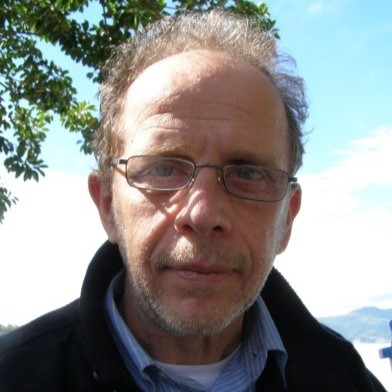
Prof Leandros A. Skaltsounis
National and Kapodistrian University of Athens, Greece
Leandros A. Skaltsounis is Full Professor and Director of the Laboratory of Valorization of Bioactive Natural Products, Faculty of Pharmacy, National and Kapodistrian University of Athens. He served 4 years as vice Dean and 9 years as Dean of the Faculty. He obtained his Ph.D. (Doctorat d’Etat ès Sciences Pharmaceutiqes, Distinction with Honors) from Descartes University, Paris V, in 1987. Then he spent six years as academic staff in University PARIS V. Since 1993 he is a permanent member of the Faculty of Pharmacy in the National and Kapodistrian University of Athens. At present he leads a research group of more than 30 researchers focusing on natural product-based lead discovery for various applications, in therapeutics, functional foods, cosmetics and agrochemicals. He is awarded with 95 research grants of EU, GSRT (Greece) and other organizations. ##MORE## Research activities of his team have resulted so far in the publication of over than 415 research papers and 20 patents with more than 23.000 citations and h-index: 71.He was an invited speaker to more than 55 international conferences and 60 laboratories or research centers all over the world.He is member of many Scientific Societies & Organisms including the French Academy of Pharmacy, Society for Medicinal Plant Research (GA) Advisory Board 2009-2011, French Society of Pharmacognosy (AFERP) Advisory Board 2009-2013, Scientific Council of I.P.A.M. (Institute of Medicinal &Aromatic Plants), EU PHARMACOPEA commissions 13A and 13BHe was also involved in the organization of many scientific conferences, including the:2nd International congress of AFERP, 2002, 19-21, September Athens, Greece; Chairman.8th Joint meeting of AFERP, ASP, GA, PSE & SIF, 2008, 3-8, August, Athens, Greece; Chairman (1300 participants from 80 countries, the most important scientific event on Natural product Chemistry and Biology organized by the European and American Scientific Societies every 4 years).17th Hellenic Pharmaceutical congress Athens, Greece 2015 8-11 October; Chairman.LE STUDIUM CONFERENCES: “Olive Bioactives applications and prospects” Orleans, France 2016, 4-6 July; Chairman.30th International Symposium on the Chemistry of Natural Products (ISCNP30) & of the 10th International Conference on Biodiversity (ICOB10) Athens, Greece 2018, 25-30 November; Chairman.He was Invited Professor in the following Universities and Research centers:University of PARIS V Rene Descartes, University of Orleans, University of Innsbruck and Chinese Academy of Sciences, in the frame of Overseas High-level Talents program.He has 6 products in the market as biological reagents commercialized by Sigma-Aldrich, Merck and in 2013 he founded a spin-off company “Pharmagnose”, dealing with natural products chemistry and biology (www.Pharmagnose.com).
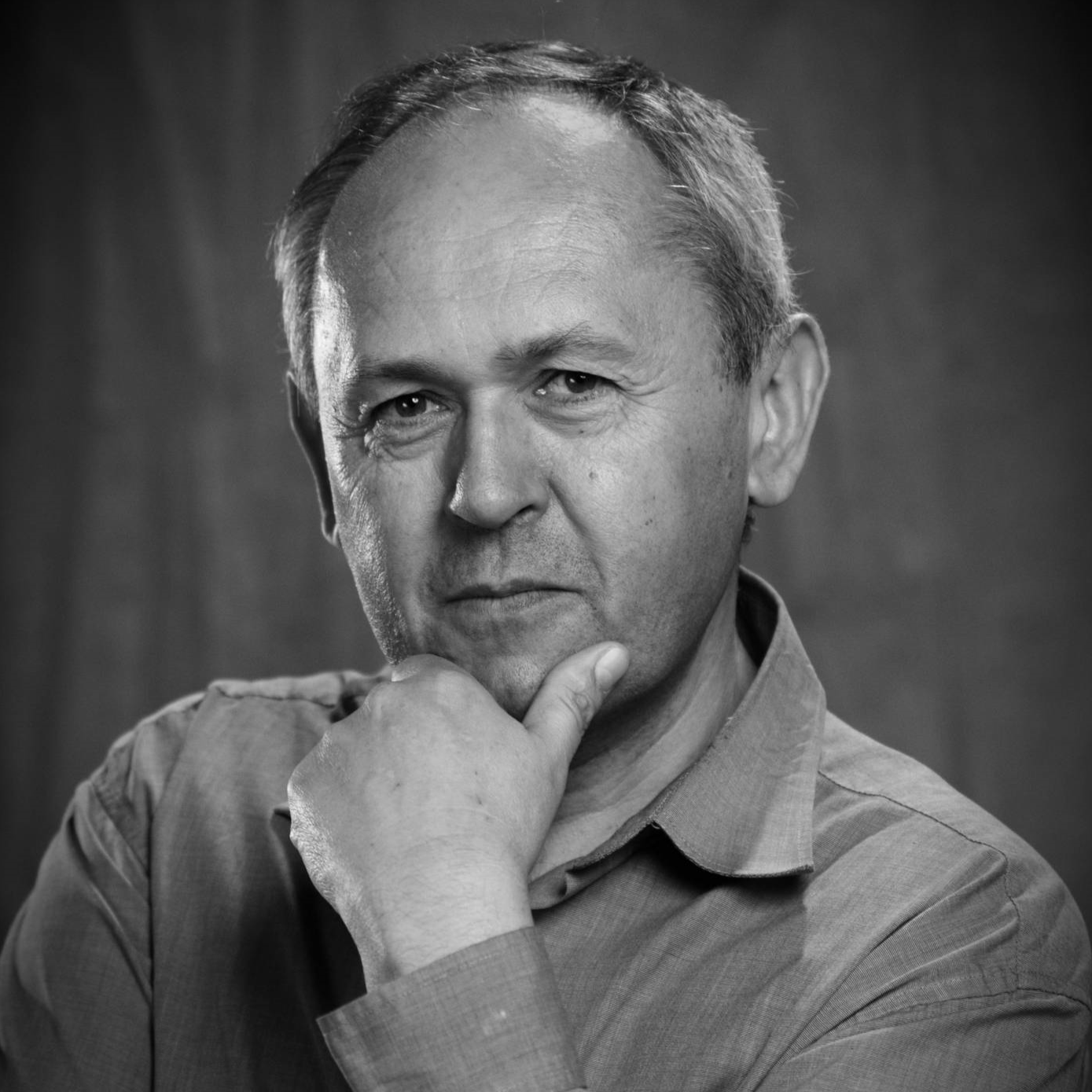
Prof. Miroslav Strnad
Palacký University in Olomouc, Czech Republic
Miroslav Strnad is professor in the Laboratory of Growth Regulators, Institute of Experimental Botany ASCR & Palacký University in Olomouc, Czech Republic (rustreg.upol.cz). Strnad’s current focus is on the research and development of a new generation of compounds with anti-viral, anti-proliferative, anti-angiogenic and anti-senescence properties, the molecular mechanisms of their action and the potential combinatory therapies based on these compounds, new phytohormone derived cosmetic as well as plant growth regulators for plant biotechnology and agriculture. ##MORE## He graduated in Phytotechnologies from the Faculty of Agronomy, Mendel University, Brno, in 1982 (Ing.). In 2001 was promoted to Professor of the Palacký University in Olomouc, Czech Republic. In 1998, he was awarded the Rhone-Poulenc Rorer Award by the Phytochemical Society of Europe (PSE), in recognition of his work on the identification, analysis and biochemistry of phytohormones topolins. In 1999, he received the award of the City of Olomouc and honorary residency of Olomouc; in 2004 the prize of the Learned Society of the Czech Republic in recognition of his scientific achievements. Prof. Strnad has been widely publishing (11 chapters in books; more than 480 papers in recognized journals; 3 books; 38 Czech and 43 international patents; citations > 17 000; Hirsch index: 70). He was PSE president (2014-2016), and between 2012-2014, 2016-2018 vice-president
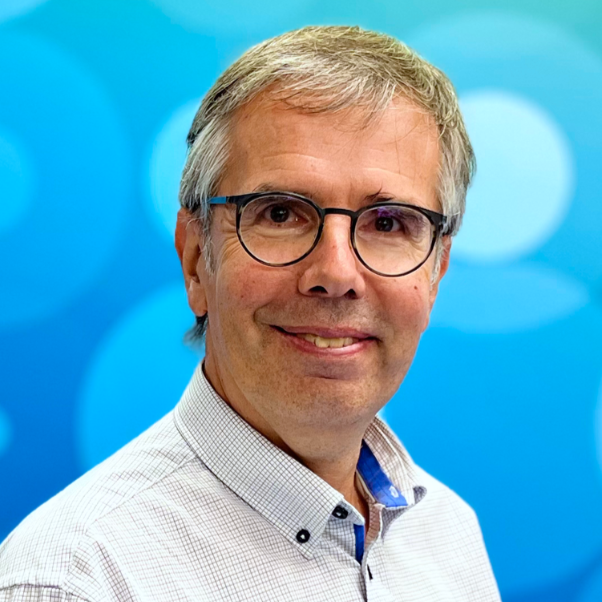
Prof. Jean‐Luc Wolfender
Université de Genève, Switzerland
Jean‐Luc Wolfender is Professor at the University of Geneva where he leads the phytochemistrybioactive natural product (PBNP) group. Since the 1990s he helped introduce LC-MS and LC-NMR forthe profiling of natural extracts for dereplication for accelerating the discovery of novel bioactivecompounds. He is currently developing innovative metabolomic approaches based on massspectrometry and nuclear magnetic resonance (NMR) in various aspects of natural product researchand includes LC-MS computational approaches for data mining with a focus on generic assessmentnatural extracts composition. ##MORE## His research focuses on the discovery of NP-based drugs and evidence-based phytotherapy, and also covers the search for new NP that can be induced in response tostimuli.
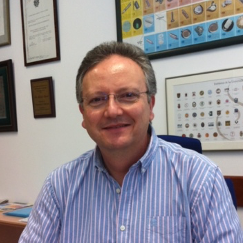
Prof. Francisco A. Macías
University of Cádiz, Spain
Francisco A. Macías is Professor of Organic Chemistry at the University of Cádiz, (Spain)since 2000. He has been awarded the 1999 Rhône-Poulenc Rorer Prize from thePhytochemical Society of Europe (PSE); 2011 Molish Award from the InternationalAllelopathy Society (IAS); 2015 Gold Medal of the European Forum 2001; 2021 Top 2%of Scientists in the world, according to the Ranking of the World Scientists, StanfordUniversity, USA. Their general philosophy is to learn from nature. ##MORE## His research interestis related to different aspects of Allelopathy including higher plants and microorganisms,involves studies on natural and modified ecosystems, and the development of newmethodologies for allelopathic studies. During this period, his group has isolated,identified, characterized, synthesized, and tested the bioactivity of 3700+ potentialallelochemicals and derivatives belonging to a wide range of chemical families such asaglycones and glycosides: simple phenolics; coumarins; flavonoids; lignans; terpenoids:mono, sesqui, di, spirodi, grouper and triterpenoids; benzoxazinoid steroids; amongothers, with applications in agriculture and medicine. He is the author of 16international patents. His publications exceed 350, with book chapters. He hassupervised 35 doctoral theses and delivered 390+ conferences around the world. He isthe current president of the Phytochemical Society of Europe (PSE).
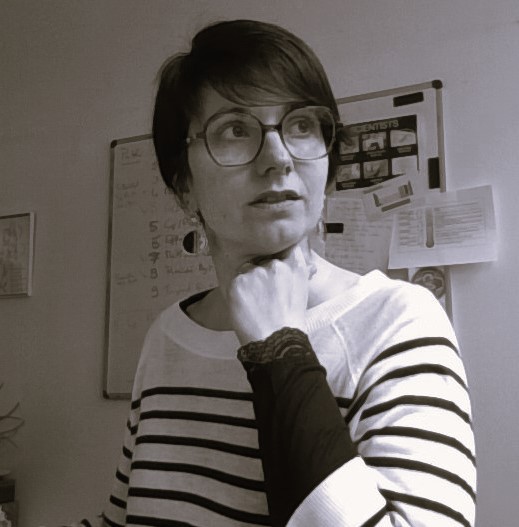
Prof. Leslie Boudesocque Delaye
Synthèse et Isolement de Molécules BioActives , France
Leslie Boudesocque Delaye graduated from the Faculté de Pharmacie de Reims Champagne-Ardenne in 2008 with a PharmD. She completed her PhD on Centrifugal Partition Chromatography purification processes for natural peptides under the supervision of Pr JH Renault in 2010. ##MORE## Her thesis received the Prix de la Chancellerie de Reims and won the Crafty Chromatographer Award at the CounterCurrent Chromatography conference in Lyon (2010). After completing a post-doctorate at Lonza (Viège, Switzerland) in 2011, she joined the University of Tours as a lecturer. In 2021, she will be promoted to full professor within the SIMBA laboratory (EA 7502). Her research focuses on the development of innovative eco-designed processes for the access to metabolites of biological interest from plant or microalgal biomass. She has extensive expertise in the design of natural eutectic solvents for cosmetic applications, both for preparing ingredients and finished products. Pr Boudesocque-Delaye's lab is also developing innovative separation strategies using Centrifugal Partition Chromatography and High Performance Thin Layer Chromatography (HPTLC).
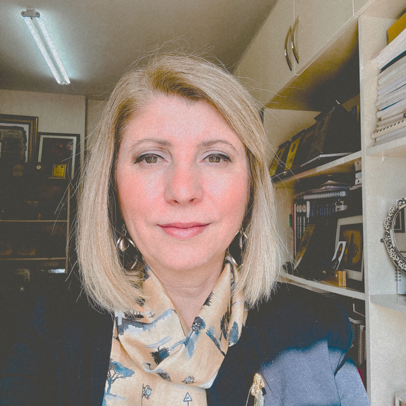
Prof. Dr. Ilkay Erdogan Orhan
Gazi University, Turkey
Prof. Dr. Ilkay Erdogan Orhan holds a Pharmacist degree (1993) from Gazi University (Ankara, Türkiye), 1st M.Sc. degree from the Department of Pharmacognosy at the same Faculty (1996) with a young scientist scholarship provided by Scientific and Technological Research Council of Türkiye (TUBITAK). Then, she was awarded her second M.Sc. degree in Marine Natural Product Chemistry in 1998 at the University of the Ryukyus in Japan, supported by a Monbusho scholarship. She earned a Ph.D. in Pharmacognosy at the Faculty of Pharmacy, Gazi University (Ankara, Türkiye) in 2002. She was a post-doctoral researcher at the Department of Chemistry at the University of Winnipeg (Canada) in 2003 under the NATO-TUBITAK fellowship program. ##MORE## She was promoted to Assoc. Prof. position by the Higher Education Council (Türkiye) in 2004 and to full professor in 2009. Dr. Orhan was appointed as Dean of the Faculty of Pharmacy at Eastern Mediterranean University in Northern Cyprus (2011-2014) and Dean of the Faculty of Pharmacy at Gazi University in Ankara (2016-2024). She is Vice President of the International Scientific Evaluation Board of the Austrian Drug Screening Institute (ADSI) Dr. Orhan received several awards such as Young Woman Scientist Award in Asia continent by OWSD (Organization of Women in Science in Developing Countries) & Elsevier, Science Award in Biology by COMSTECH (OIC Standing Committee on Science and Technological Cooperation) in 2010, Young Woman Scientist Award (in Life Sciences) by L’Oreal & Turkish Academy of Sciences in 2011, and Honor Award by Gazi University in 2011, Innovation Award for Women in Turkey in 2015, Science Award by Turkish Association of Pharmacists in 2016, Golden Mortar Science Award in Pharmacy in 2017, Silver Medal for Patent in International Invention Fair by Turkish Ministry of Science and Technology in 2017 as well as Best Academic Invention Medal by International Federation of Invention Associations (IFIA) in 2018. She also received the TWAS (The World Academy of Sciences) Science Award in Chemistry and a Certificate of Outstanding Service and Achievement from the Turkish Industrialists and Businessmen's Foundation (TÜSİAV) in 2024. She is the principal member of the Turkish Academy of Sciences (TÜBA) and was the Representative of Southeast Europe & Turkey Region for the Phytochemical Society of Europe (PSE) for 2019-2023.She is the author of more than 295 scientific papers listed by SCE, 47 articles in other scientific journals, 24 book chapters, 4 patents (Turkish, US, & EP), 6 patent applications, and 4 books. Her h index is 53 (Web of Science) and 59 (SCOPUS) with over 14500 citations. Her research interests are chemistry and bioactivities of natural products, phytocosmetics, phytotherapy, and aromatherapy. She is currently Associate Editor of Phytomedicine and Editor-in-Chief of Turkish Journal of Pharmaceutical Sciences.
AWARD WINNERS
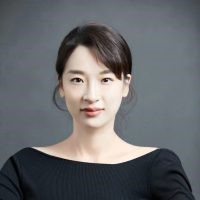
Dr Cherry Lifeng Li
Baptist University, Hong Kong
- Willmar Schwabe Young Talent Prize- Dr Cherry Lifeng Li is a Research Assistant Professor at the Teaching and Research Division of the School of Chinese Medicine at Hong Kong Baptist University. With expertise in quality control, structural characterization, and research on in vivo fate and metabolic tracking of natural polysaccharides, she has made significant contributions to the field. Li has authored 27 SCI papers, with individual citations exceeding 104, demonstrating her impact on the scientific community. Her H-index of 10 reflects the quality and influence of her research. Additionally, she holds 8 patents, both domestically and internationally, showcasing her innovative work. Her research focus is currently on exploring natural polysaccharide-protein interactions and developing a nature-sourced polymer-based drug delivery system.
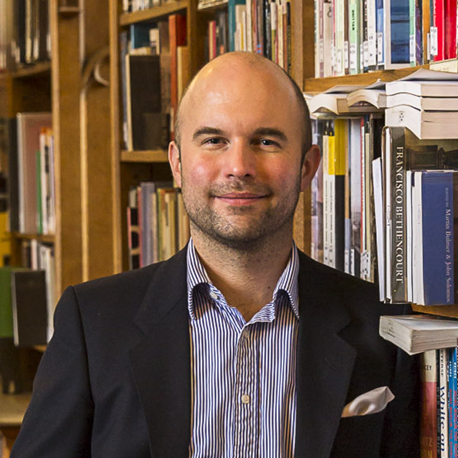
Dr Andreas Bender
University of Cambridge, United Kingdom
- GA Synergy Award - The second GA synergy award, in 2024, has been awarded to emphasize the importance, and synergy, between computational and experimental methods in the field.The awardee, Prof. Andreas Bender from the University of Cambridge, and CITO of Pangea Bio, contributed to a better understanding of characteristics and limitations of current widely used synergy metrics, as well as, in particular, the interplay between network biology, predictive modelling, and experimental validation, with an emphasis on natural products and those from plant medicines. He presented his research at the International Congress on Natural Products Research in Krakow, Poland, which was held from 13-17 July 2024.
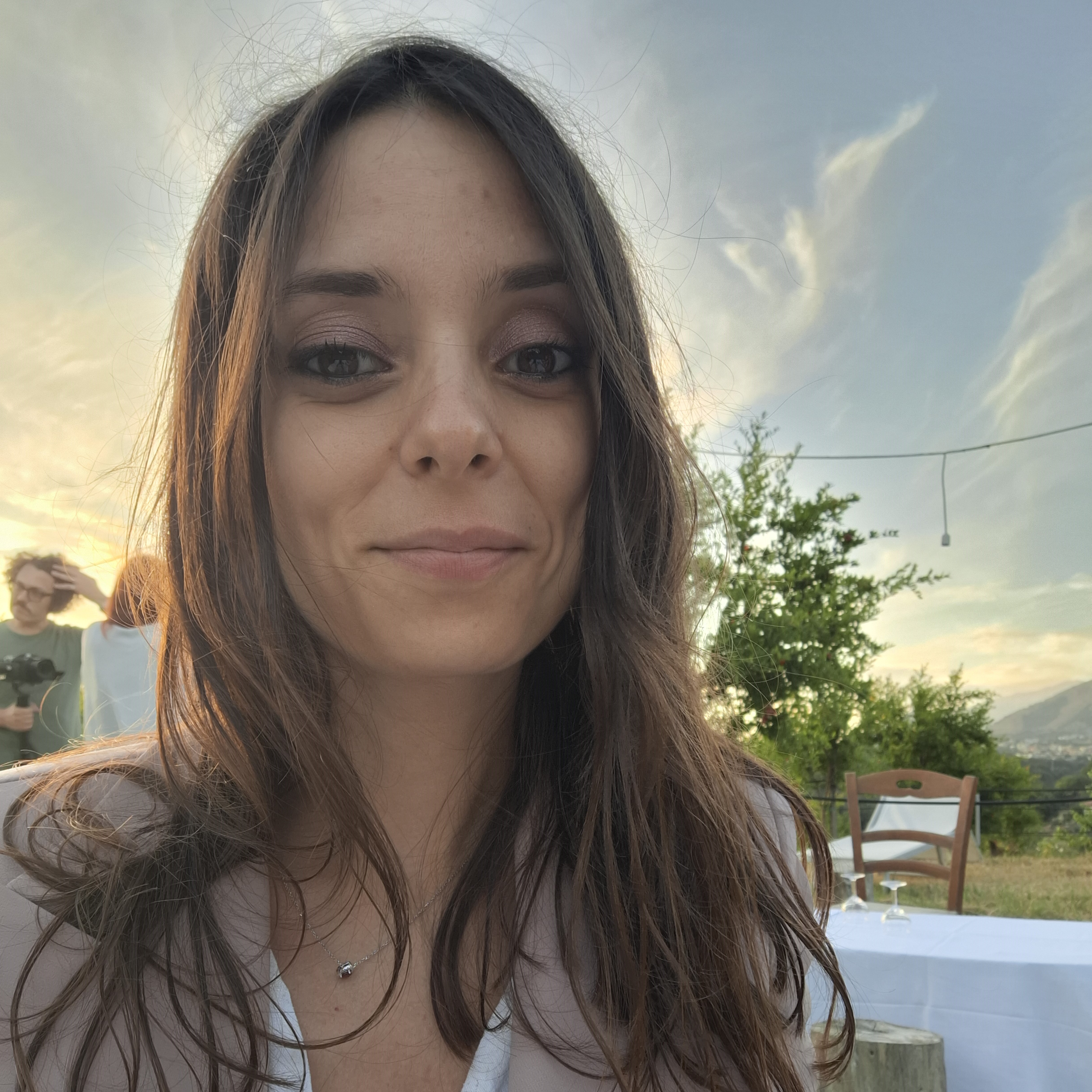
Dr Valentina Parisi
University of Salerno, Italy
- ESA Bronze - Dr Valentina Parisi has been graduated cum laude in Pharmacy in 2019 discussing a thesis about the isolation and characterization of diterpenes from Zhumeria majdae. During PhD the focus of her research was the chemical-biological investigation of medicinal and food plants, and their derived waste, traditionally used in Campania Region (Southern Italy) with the aim to valorise the ethnobotanical knowledge and promote the circular economy of a disadvantaged territory. The results of this research have been reporter in the PhD thesis titled “Bioprospecting from Campania Region to promote the sustainable use of biodiversity” discussed in April 2023. She is a postdoctoral researcher at University of Salerno, financed by National Recovery and Resilience Plan (PNRR) within the National Biodiversity Future Center (NBFC) . Her current research is focused on the phytochemical study of plants as sources of potential bioactive molecules, together with the use of NMR-based metabolomics to profile plant, food and biological matrixes. Dr Parisi has published up to now 23 papers in international peer-reviewed journals.
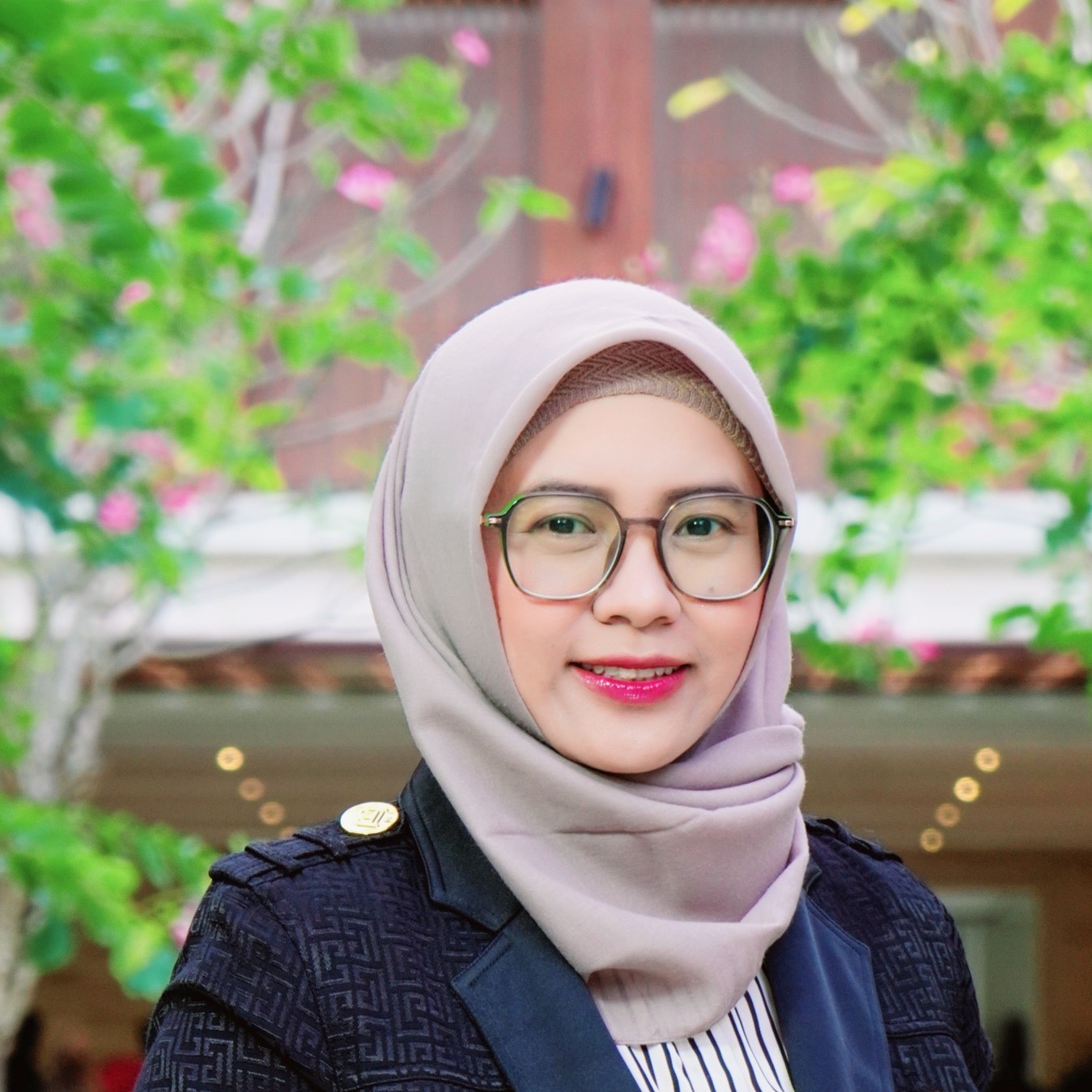
InstitutTeknologi Sepuluh Nopember, Indonesia
The prestigious Willmar Schwabe Award 2024 is bestowed to Dr. Sri Fatmawati from InstitutTeknologi Sepuluh Nopember, Surabaya, Indonesia. Dr. Fatmawati has published over 50papers in international journals, amassing an impressive 2,061 citations. She has madesignificant contributions to the discovery of chemical constituents in Indonesian traditionalmedicines and the recognition of their pharmacological relevance, identifying key bioactivitiesin these plants. Additionally, she is committed to supporting young scientists, local herbalfarmers, and mentoring female researchers, demonstrating her dedication to promotingmedicinal plant and natural product research among underrepresented groups.It is a pleasure to award Dr. Fatmawati, with this prize that acknowledges her achievementsand fosters the scientific study of traditionally used plants.